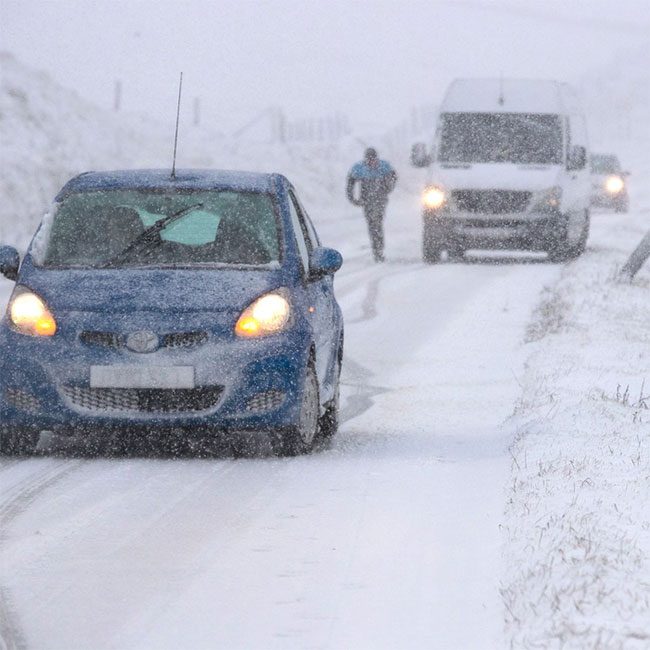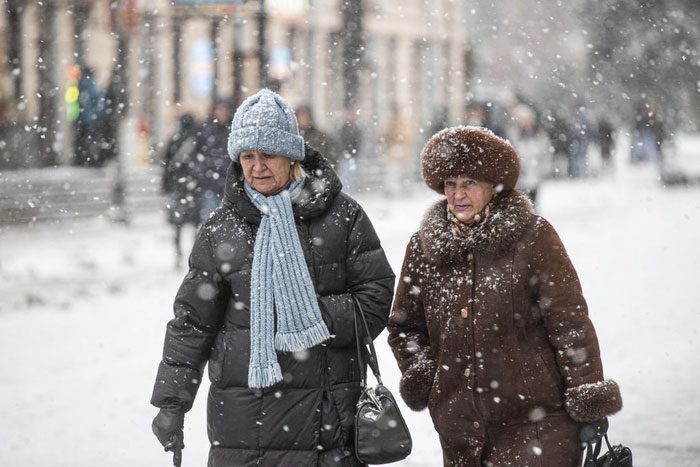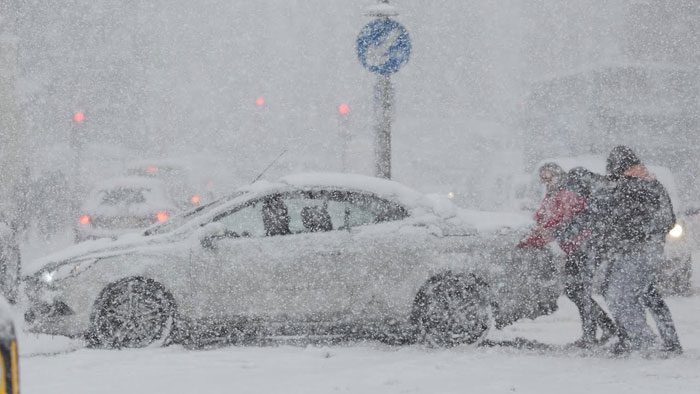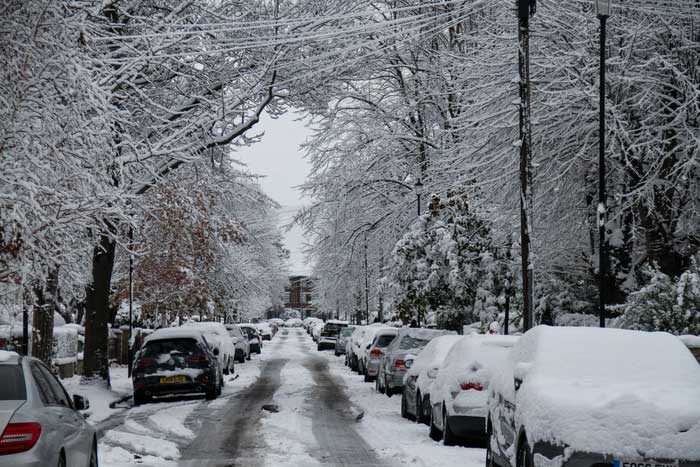The United Kingdom is facing severe cold and snow as storms sweep across the northern regions of the country.
The World Meteorological Organization issued a yellow warning for frost across much of Scotland, northwestern England, and Wales on December 17. This situation has persisted since the previous weekend, with heavy snowfall in the north and widespread freezing throughout the country on December 18.
The frozen ground has made travel difficult in some areas. At the same time, the UK Health Security Agency warned that this weather could “increase health risks for vulnerable patients and disrupt service delivery.”

Prolonged cold weather greatly affects the lives and health of the UK population
Weather forecasters suggest that while temperatures may rise, they will be accompanied by strong winds leading to snowstorms and hail, posing dangers for those traveling on the roads.
What is causing such cold weather?
Cold air from the Arctic is sweeping over the UK, due to a high-pressure system in Greenland and Iceland moving east towards another high-pressure system in Russia. As a result, a mass of cold air has been pushed southward and is enveloping the UK.

Cold air from the Arctic is sweeping over the UK
Is this weather unusual?
Steve Willington, a meteorologist with the World Meteorological Organization, stated: “Daytime temperatures are only a few degrees above freezing, while nighttime temperatures can drop below -10 degrees Celsius or lower in some areas. Although this is below average, such temperatures are not particularly unusual for this time of year.”
Average daily temperatures in December have ranged from 3 to 5 degrees Celsius in recent decades. However, such temperatures can be surprising given that the previous autumn was relatively warm.
A spokesperson for the World Meteorological Organization added: “The weather changes quite rapidly compared to the mild autumn preceding it, which is why it feels colder. But in reality, there is nothing abnormal for this time of year.”

The deep cold feeling partly comes from the sudden transition from autumn to winter
Is there a link between the weather and current climate change?
According to The Guardian, the answer is no. Weather can fluctuate above or below average from week to week. For example, in the first half of December 2012, it was even colder than now, but the weather warmed up by the end of the month, so the average temperature for the entire month remained normal.
But does this cold weather prove that global warming is not as serious as we think?
Cold weather does not mean the Earth is not warming. The evidence that greenhouse gas emissions from human activity are leading to warming of the atmosphere is clear.
Professor Lizzie Kendon, a climate research scientist, stated: “As our climate warms, winters in the UK will also become milder. This reduces the frequency and severity of extreme cold spells that we would otherwise experience.”

Cold weather does not mean the Earth is stopping its warming
“Even as the Earth warms, the UK can still experience cold weather like we are seeing now. This is due to the natural variability of weather. Days with temperatures below freezing can still occur in the future, although they will be less frequent,” she added.
In fact, it is likely that 2022 will be the hottest year ever recorded in the UK. Only a cold winter could help keep the average temperature index from exceeding the previously set record.
Mike Kedon, a meteorologist at the National Climate Information Centre, noted: “All of the top 10 hottest years in the UK have been recorded since 2002, which is a clear indicator of global warming.”


















































